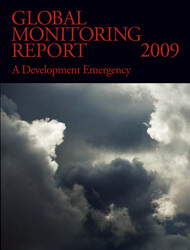
Colombia: Technical Assistance Report-Public Investment Management Assessment (PIMA) and Climate-PIMA
Colombia: Technical Assistance Report-Public Investment Management Assessment (PIMA) and Climate-PIMA
READ MORE...
Volume/Issue:
Volume 2025
Issue 075
Publication date:
ISBN:
Add to Cart by clicking price of the language and format you'd like to purchase
Available Languages and Formats
Topics covered in this book
This title contains information about the following subjects.
Click on a subject if you would like to see other titles with the same subjects.
public investment , Colombia , PIMA , climate change , FMI , infrastructure , governance , public financial management , FAD
Summary
[Please note this report is only available in Spanish] Over the last two decades, Colombia's public investment spending has averaged 3% of GDP, trailing behind its regional peers in Latin America and the Caribbean, which exceed 5%. This spending level correlates with limited access to essential services, including education, health, and electricity. In response to pressing needs, Colombian authorities aim to boost public investment, particularly in climate-focused infrastructure. The PIMA – CPIMA highlights a significant efficiency gap in Colombia's public investment management, suggesting that improvements could nearly double the benefits derived from current capital expenditures. The country possesses a relatively strong institutional framework for public investment, featuring effective multi-year budgeting and advanced project evaluation methods. However, challenges persist, such as complex coordination between government levels and fragmented financing sources, which hinder effective implementation.
The assessment emphasizes strengths in addressing climate change within public investment planning but identifies a lack of mandatory methodologies for disaster risk analysis and insufficient prioritization of climate-sensitive projects. Recommendations include enhancing coordination between national and subnational entities, refining project classifications for better management, improving oversight of extrabudgetary entities, and ensuring comprehensive monitoring of project execution to bolster public infrastructure and climate resilience.
Copyright © 2010 - 2025
Powered by:
AIDC



